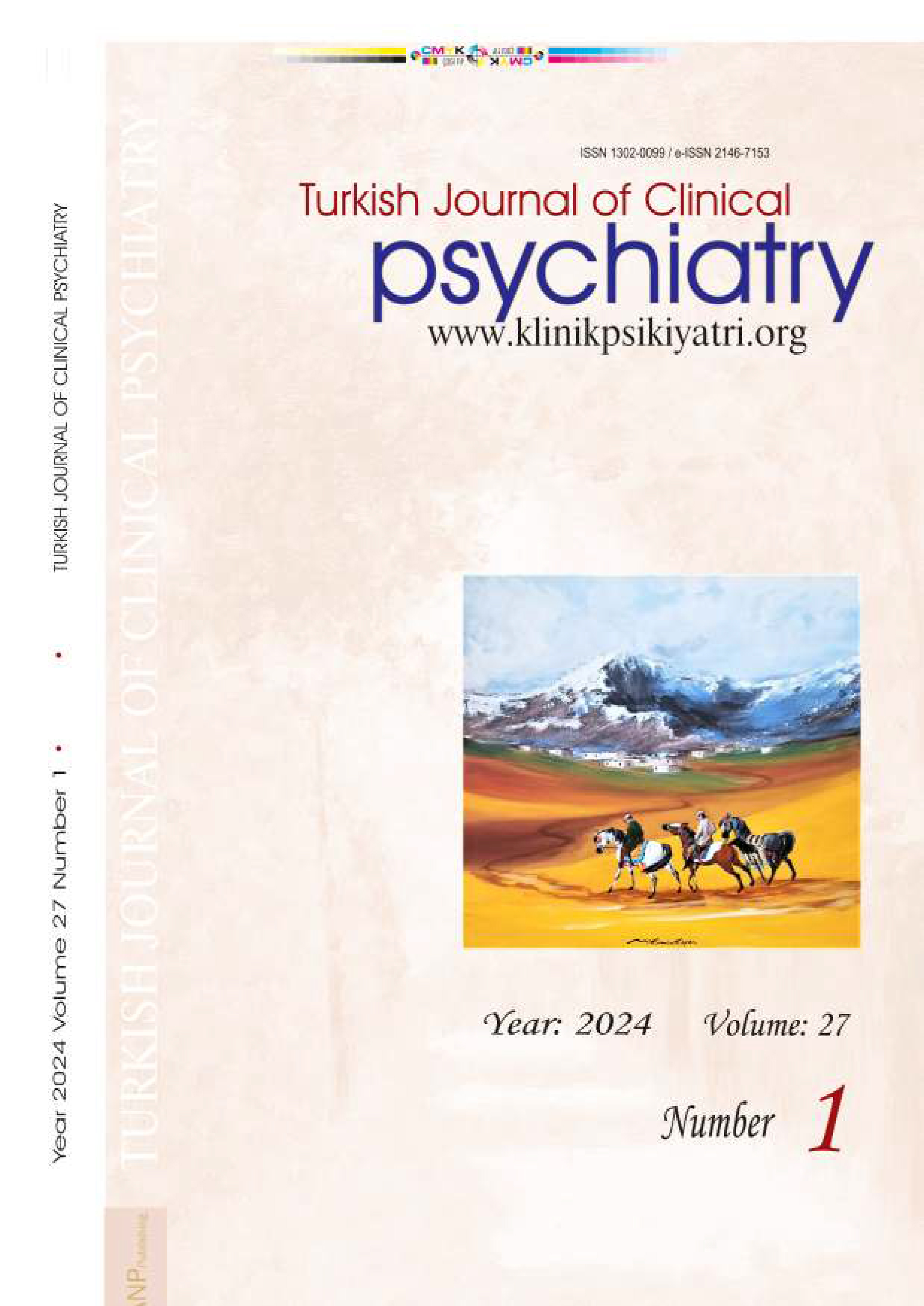





Assessment of cardiovascular risk for serious mental disorders (tur)
Rugül Köse Çınar1, Pelin Taş Dürmüş21Department Of Psychiatry, Trakya University, Edirne, Turkey2Department Of Psychiatry, State Hospital, Besni, Adıyaman, Turkey
INTRODUCTION: Incidence and prevalence of cardiovascular diseases in patients with severe mental disorders are higher than the general population. It was aimed to calculate the 10 year cardiovascular disease risk by using Framingham risk scoring (FRS) and investigate the relationship between this score and C-reactive protein in psychiatric inpatients of a university hospital.
METHODS: Inpatients with the diagnosis of major depression, bipolar disorders and psychotic disorders in six months time were included in the study.Participants were assessed based on their gender, age, body mass index, waist circumference, FRS, and CRP levels.
RESULTS: The calculated 10 year cardiovascular disease development risk did not differ between the diagnosis (p=0,39), but found to be significantly higher in males than females (p=0,002). FRS levels showed positive correlations with male gender (p=0,002), age (p=0,000), waist circumference (p=0,001), and body mass index (p=0,001).
DISCUSSION AND CONCLUSION: We have to evaluate coesisting somatic diseases of psychiatric patients as well as behavioral and psychological problems. Using FRS, evaluating body mass index and waist circumference could help us predict the risky population and we could consider our drug treatment choices accordingly.
Keywords: Framingham risk scoring, C-reactive protein, depression, psychotic disorders, bipolar disorder
Ciddi mental bozukluklarda kardiyovasküler riskin değerlendirilmesi (tur)
Rugül Köse Çınar1, Pelin Taş Dürmüş21Trakya Üniversitesi Tıp Fakültesi, Psikiyatri Ana Bilim Dalı, Edirne2Besni Devlet Hastanesi, Psikiyatri Bölümü, Adıyaman
GİRİŞ ve AMAÇ: Ciddi mental bozukluk sahibi hastalarda kardiyovasküler hastalık insidans ve prevalansı genel toplumdan daha yüksektir. Bir üniversite hastanesi psikiyatri servisinde yatarak tedavi gören hastalarda, Framingham risk skorlamasını (FRS) kullanarak, 10 yıllık koroner kalp hastalığı gelişme riskini ve bu riskin C-reaktif protein (CRP) ile ilişkisini belirlemek amaçlanmıştır.
YÖNTEM ve GEREÇLER: Çalışmaya altı ay süresince yatarak tedavi gören major depresyon, bipolar bozukluk ve psikotik bozukluk tanıları ile takip edilen hastalar dahil edilmiştir. Katılımcılar cinsiyet, yaş, beden kitle indeksi, bel çevresi, FRS, CRP seviyeleri açısından değerlendirilmiştir.
BULGULAR: 10 yıllık koroner kalp hastalığı gelişim riski tanıya göre fark göstermezken (p=0,39), erkeklerde kadınlardan anlamlı olarak yüksek bulundu (p=0,002). FRS seviyeleri erkek cinsiyet (p=0,002), yaş (p=0,000), bel çevresi (p=0,001) ve beden kitle indeksi (p=0,001) ile pozitif ilişki gösterdi.
TARTIŞMA ve SONUÇ: Psikiyatrik hastaların davranışsal ve psikolojik sorunlarının yanı sıra eşlik eden bedensel hastalıklarını da değerlendirmeliyiz. FRS kullanılması, beden kitle indeksi ve bel çevresi ölçümlerinin değerlendirilmesi, riskli popülasyonun ön görülmesinde ve ilaç tercihinin yönetiminde yararlı olabilecektir.
Anahtar Kelimeler: Framingham risk skorlaması, C-reaktif protein, depresyon, psikotik bozukluklar, bipolar bozukluk
Manuscript Language: Turkish
(1330 downloaded)











